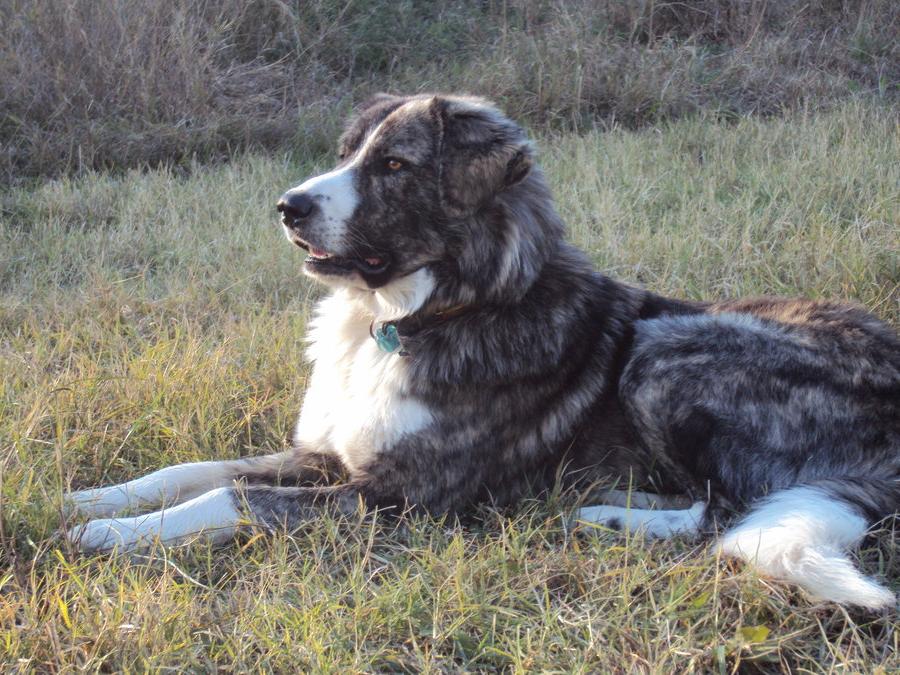- Breed Category: Working Dog
- Country of Origin: Greece
- Average Height: Males 60-65 cm, Females 58-63 cm
- Average Weight: Males 32-50 kg, Females 30-45 kg
- Average Life Span: 10-12 years
- Grooming Requirements: Moderate, regular brushing needed
- Exercise Requirements: High, needs daily exercise
- Coat Type: Dense, double coat
- Coat Color Variations: Black, brown, grey, white
- Shedding Level: Moderate to high
- Ear Type: Medium, triangular, erect
- Tail Type: Long, bushy
- Temperament: Loyal, protective, independent
- Intelligence Level: High
- Barking Tendency: Moderate
- Compatibility with Children: Good with proper socialisation
- Compatibility with Other Pets: Varies, early socialisation important
- Training Ease: Moderate, requires experienced handler
- Common Health Issues: Hip dysplasia, eye conditions
- Dietary Needs: High-quality, balanced diet
- Energy Level: High
- Drooling Tendency: Low
- Sensitivity to Weather: Tolerant to cold, less to heat
- Overall Maintenance Level: Moderate
- Original Purpose: Livestock guardian
- Apartment Friendly: Not ideal, needs space
- Best Suited For: Rural or suburban homes
- Cost of Ownership: Moderate to high
- Unique Traits: Strong guardian instincts
Imagine a dog as rugged and resilient as the Greek mountains themselves. The Greek Shepherd Dog, or Greek Sheepdog, is a breed that embodies strength and loyalty, much like the ancient warriors of its homeland. This article aims to delve into the breed’s unique characteristics, rich history, and essential care needs.
Originating from Greece, this breed has been a steadfast guardian of livestock for centuries. Its roots trace back to the mountainous regions, where it was bred to protect flocks from predators. The Greek Shepherd Dog is not just a working dog; it’s a symbol of the enduring bond between humans and animals in the harshest of environments. Understanding its history helps appreciate its role in today’s world.
Greek Shepherd Dog: A Glimpse into Its Heritage and Characteristics
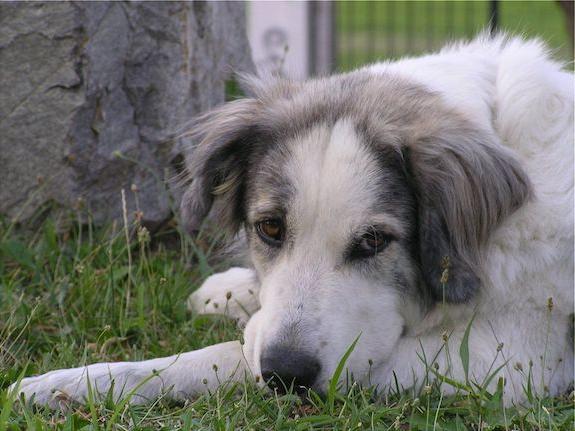
Early Development of the Breed
The Greek Shepherd Dog has a history as rugged as the terrain it hails from. Bred in the mountainous regions of Greece, this breed was developed to be a formidable guardian of livestock. Its early development focused on creating a dog that could withstand harsh climates and fend off predators, ensuring the safety of flocks. This resilience and adaptability are still evident in the breed today.
Role in Greek Livestock Farming
In Greek livestock farming, the Greek Shepherd Dog plays a crucial role. These dogs are not just protectors; they are partners to the shepherds, working tirelessly to keep livestock safe. Their keen instincts and unwavering loyalty make them indispensable in managing and safeguarding herds across the challenging Greek landscapes.
Key Historical Figures and Cultural Significance
Throughout history, the Greek Shepherd Dog has been more than just a working animal. It has been a cultural icon, representing the enduring relationship between humans and their environment. While specific historical figures may not be widely documented, the breed itself stands as a testament to the ingenuity and resilience of Greek pastoral communities.
Physical Characteristics
Physically, the Greek Shepherd Dog is a powerhouse. It boasts a sturdy build, with a thick coat that provides protection against the elements. Its strong, muscular frame is complemented by a keen, intelligent expression. These dogs are typically large, with males often weighing more than females, and their presence is as commanding as their protective instincts.
Appearance and Unique Physical Traits
The Greek Shepherd Dog is a striking figure, known for its large size and robust build. Its coat is typically thick and weather-resistant, often appearing in shades of white, black, or grey, sometimes with distinctive markings that add to its rugged charm. This breed’s physical presence is both commanding and reassuring, a testament to its role as a protector.
One of the most notable traits of the Greek Shepherd Dog is its hardy constitution. Bred to endure the harsh climates of mountainous regions, these dogs are built to last. Their muscular frame and strong limbs enable them to navigate rough terrains with ease, making them ideal for their traditional role in livestock protection.
Temperament and Behaviour
When it comes to temperament, the Greek Shepherd Dog is as loyal as they come. These dogs are known for their protective nature, always vigilant and ready to defend their charges. Despite their formidable appearance, they are gentle and affectionate with their families, forming strong bonds with those they trust.
In terms of behaviour, they are intelligent and independent thinkers, traits that have been honed over generations of working alongside shepherds. While they are naturally wary of strangers, proper socialisation can help them become well-rounded companions. Their instincts make them excellent guardians, but they also require firm and consistent training to channel their energy effectively.
Greek Shepherd Dog: Ideal Traits and Family Suitability
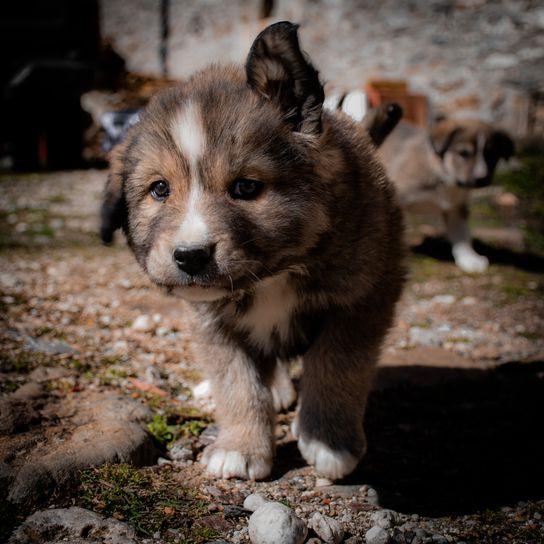
Typical Personality Traits
The Greek Shepherd Dog is renowned for its loyalty, intelligence, and protective nature. These dogs are fiercely devoted to their families, always ready to stand guard. Their intelligence makes them quick learners, capable of understanding complex commands and tasks. This combination of traits makes them not only excellent working dogs but also reliable companions.
Suitability as a Family Pet and Working Dog
As a family pet, the Greek Shepherd Dog is a wonderful choice for those who appreciate a protective and loyal companion. Their working dog heritage means they thrive in environments where they have a job to do, whether it’s guarding livestock or simply being a vigilant family member. They are best suited to homes with ample space and active lifestyles.
Interaction with Children and Other Animals
These dogs are generally good with children, displaying patience and gentleness. However, their protective instincts mean they should be supervised around young kids to ensure harmonious interactions. With proper socialisation, they can coexist peacefully with other animals, although their natural guarding instincts may require careful introductions.
Training and Exercise Needs
Training a Greek Shepherd Dog requires consistency and patience. Their intelligence and independent nature mean they respond well to firm, positive reinforcement techniques. Regular exercise is essential to keep them physically and mentally stimulated. Long walks, play sessions, and tasks that engage their minds are ideal to prevent boredom and maintain their well-being.
Training, Exercise, and Health of the Greek Shepherd Dog
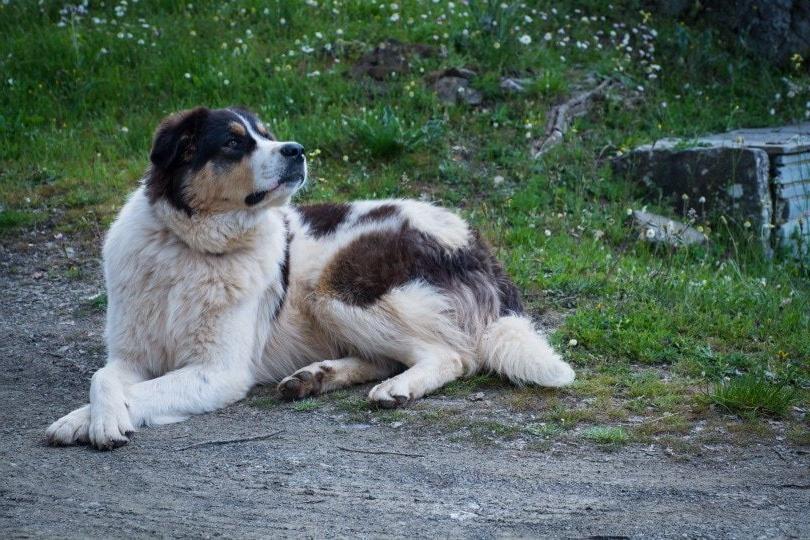
Importance of Early Training and Socialisation
Getting a Greek Shepherd Dog off to a good start with early training and socialisation is crucial. These dogs are naturally protective and independent, so introducing them to various people, environments, and other animals early on helps them grow into well-adjusted adults. This foundation is key to managing their instincts and ensuring they fit well into family life.
Recommended Training Techniques
When it comes to training, consistency is your best friend. Greek Shepherd Dogs respond well to positive reinforcement techniques. Think treats, praise, and playtime as rewards. They’re smart and can pick up commands quickly, but their independent streak means you’ll need to be patient and firm.
Daily Exercise Requirements and Activities They Enjoy
These dogs are active and need plenty of exercise to stay happy and healthy. Daily walks, play sessions, and tasks that challenge their minds are perfect. They love activities that let them use their natural instincts, like herding games or agility training. Keeping them engaged physically and mentally is key to preventing boredom.
Health and Lifespan
Greek Shepherd Dogs are generally healthy, with a lifespan of around 10 to 12 years. Regular vet check-ups, a balanced diet, and plenty of exercise contribute to their well-being. Like all breeds, they can be prone to certain health issues, so staying informed and proactive about their health is important.
Health and Care of the Greek Shepherd Dog

Common Health Issues
Greek Shepherd Dogs are generally robust, but like any breed, they can face certain health issues. Hip dysplasia is a concern due to their size, and regular vet check-ups can help catch this early. They might also be prone to eye conditions, so keeping an eye on their vision is wise.
Average Lifespan and Health Tips
With proper care, these dogs typically live between 10 to 12 years. To keep them healthy, ensure they have a balanced diet rich in nutrients. Regular exercise is crucial, not just for their physical health but also to keep their minds sharp. Mental stimulation through training and play is just as important as physical activity.
Preventative Care Recommendations
Preventative care is key to a long, healthy life. Regular vet visits for vaccinations and health screenings are essential. Dental care shouldn’t be overlooked either; regular brushing can prevent dental issues. Parasite control, including flea and tick prevention, is also important, especially if they spend a lot of time outdoors.
Grooming and Maintenance
Their thick coat requires regular grooming to keep it in top condition. Brushing a few times a week helps manage shedding and keeps their coat healthy. During shedding seasons, more frequent brushing might be needed. Bathing should be occasional, as over-bathing can strip their coat of natural oils.
Coat Care and Grooming for the Greek Shepherd Dog
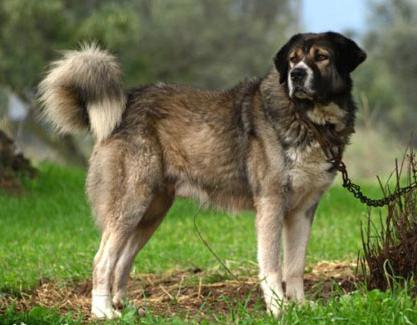
Coat Care and Grooming Routines
The Greek Shepherd Dog’s thick, weather-resistant coat is one of its defining features. Regular grooming is essential to keep it looking its best. A good brush a few times a week will help remove loose hair and prevent matting. This not only keeps their coat healthy but also reduces shedding around the home.
Shedding and Seasonal Grooming Tips
Shedding is a natural part of life for these dogs, especially during seasonal changes. During these times, you might notice more hair around the house. Increasing the frequency of brushing during shedding seasons can help manage this. A slicker brush or an undercoat rake can be particularly effective in reaching the dense undercoat.
Diet and Nutrition
A balanced diet is crucial for the Greek Shepherd Dog’s overall health and coat condition. High-quality dog food that meets their nutritional needs will support their active lifestyle and maintain their robust physique. Including omega-3 and omega-6 fatty acids can also promote a healthy, shiny coat. Always ensure they have access to fresh water, especially after exercise.
Nutritional Needs and Feeding Guidelines for the Greek Shepherd Dog

Nutritional Needs for Optimal Health
To keep a Greek Shepherd Dog in top shape, a balanced diet is essential. These dogs need a mix of proteins, fats, and carbohydrates to fuel their active lifestyle. High-quality dog food that lists meat as the first ingredient is a good start. Omega-3 and omega-6 fatty acids are also beneficial for maintaining a healthy coat and skin.
Foods to Include and Avoid
Include lean meats, fish, and vegetables in their diet. Avoid foods high in fillers like corn and soy, as well as artificial additives. Chocolate, grapes, and onions are toxic to dogs and should be kept out of reach.
Feeding Schedules and Portion Recommendations
Feed adult Greek Shepherd Dogs twice a day to maintain energy levels. Puppies may need three to four smaller meals daily. Portion sizes depend on their age, weight, and activity level, so consult your vet for tailored advice.
Fun Facts and Trivia
Did you know the Greek Shepherd Dog’s thick coat not only protects against the cold but also helps them blend into their surroundings? This makes them excellent at sneaking up on predators. Their loyalty is legendary, often forming lifelong bonds with their human families.
Interesting Tidbits about the Greek Shepherd Dog

Famous Greek Shepherd Dogs in Media or History
The Greek Shepherd Dog, while not as widely recognised in media as some other breeds, has its own share of fame. In Greek folklore, these dogs are often depicted as loyal companions to shepherds, embodying the spirit of protection and resilience. Their role in guarding livestock has been celebrated in various cultural narratives, highlighting their importance in rural Greek life.
One notable mention is in the works of Greek author Nikos Kazantzakis, where the breed is often portrayed as a symbol of loyalty and strength. Although not named specifically, the characteristics of the Greek Shepherd Dog are evident in the loyal canine companions featured in his stories.
In more recent times, the breed has gained attention in documentaries focusing on traditional Greek farming practices. These films showcase the Greek Shepherd Dog’s vital role in maintaining the balance between humans and nature, further cementing its status as a cultural icon.
Final Thoughts

The Greek Shepherd Dog is a symbol of loyalty and resilience. This breed’s rich history and steadfast nature make it a remarkable companion and guardian. Balancing its protective instincts with family life requires dedication, but the rewards are immense. Embracing the Greek Shepherd Dog means welcoming a loyal protector into your home, ready to stand by your side. Consider this breed if you seek a devoted and enduring canine partner.
